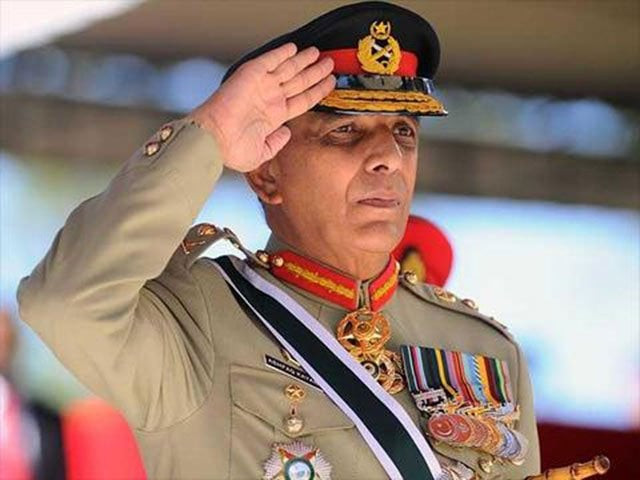Brothers in arms?
Shouldn’t moral values have prevented General Kayani from allowing his brothers access to areas he influenced?

PHOTO: AFP
How many of us remember the names of the brothers of General Mirza Aslam Beg, General Asif Nawaz Janjua, General Abdul Waheed Kakar, General Jehangir Karamat or even General Pervez Musharraf? Why was it that the brothers of General Kayani were so well known? All along, we not only knew who they were but also knew what they did. Was it not inappropriate on the part of the general to continue to allow his brothers to pursue their shady business interests in vicinities where his control and influence mattered? It didn’t take the spotlight thrown at his brothers by NAB to introduce them to us; they had already been in the national limelight for some years.
The period from 2008 to 2013 was one in which rampant corruption wounded Pakistan’s soul. Those who occupied the highest offices in the country, unfortunately, made these offices victims of their own behaviour. The long list of corruption charges against the prime ministers of that time, the corruption charges and the case against Arsalan Iftikhar, the son of a former chief justice, and the involvement of General Kayani’s brothers in real estate deals weakened public confidence in the integrity and reliability of our state institutions. During this period in which the country was being damaged emotionally as well as psychologically, the major question being asked was: how can favouritism, nepotism, cover-ups and intimidations be stopped if the top officials of our institutions themselves are the subject of such allegations? To imagine that leaders occupying these high offices at that time were not aware of the risks that they were taking would be an understatement. Their reluctance to admonish and prevent alleged corruption in their own backyards by relatives and friends diminished the honour and integrity of the offices they served.
With NAB having decided to summon Kamran Kayani over the investigations into the Rs16 billion DHA City Lahore scam, all major TV channels have been running the story. While General Kayani himself has taken the option of remaining silent on the issue, one of his brothers — a retired brigadier — has made numerous appearances on TV to defend the allegations. His repeated argument — and a weak one — on almost all channels so far has been that ‘we should be taken as individuals and not as the brothers of the former army chief’. My question is that if they were only ‘individuals’, would they have ventured so far ahead of their business competitors and be where they are today? Kamran Kayani is encamped in Dubai, where former president Asif Ali Zardari also resides. Which reminds me, could President Zardari be what he is today without being the husband of Benazir Bhutto? Would Bilawal Bhutto Zardari be anything if he were not the son of President Zardari? Would Hamza Shahbaz, Mariam Nawaz or Shahbaz Sharif be who they are and where they are without being the relatives of a three-time prime minister? The list goes on.
If the various DHA organisations were not real estate and property development entities administered by the army, the association of the Kayani brothers with the former army chief would not have mattered. Laws have been circumvented in the past and this will happen in the future too, but if there is a law that ties the hands of a person occupying the highest office, it is the law of morality and ethics. Ideally, the Kayani brothers should have had nothing to do with DHA since their elder brother apparently subscribed to the military-taught ‘laws of ethics’, which look down unfavourably upon nepotism in and around the military. General Kayani, like any other army chief, was the final authority that approved the postings and appointments of not only all DHA administrators, who are all serving brigadiers, but also the corps commanders, who act as presidents of the DHAs. While the army remained a witness to the involvement of the Kayani brothers in DHA, their elder brother did little or nothing to keep them away from the areas where he exercised influence and control. The major question at this stage is not whether the general knew and approved of the alleged wrongdoings by his brothers. The major question and an important one is this: shouldn’t moral and ethical values have prevented General Kayani from allowing his brothers access to areas that he influenced and controlled?
The greatest thing that General Raheel Sharif has brought to the office of the army chief is integrity and his reputation for honesty. Press reports suggest that he ‘green-lighted’ the NAB action against corrupt serving or retired military officers six months ago. The man on the saddle has his work cut out for him. He cannot be influenced by assumptions or advice that NAB’s action against senior military officers will inflict lasting damage to the institution he commands while at the same time lead aggressively against corruption committed by politicians and the bureaucracy. If General Raheel Sharif wants to be remembered as a military leader who played a meaningful role in restoring institutional discipline, order and credibility, his green-lighted process of accountability must proceed at a fast pace and without making exceptions towards any holy cows.
Published in The Express Tribune, January 15th, 2016.
Like Opinion & Editorial on Facebook, follow @ETOpEd on Twitter to receive all updates on all our daily pieces.















COMMENTS
Comments are moderated and generally will be posted if they are on-topic and not abusive.
For more information, please see our Comments FAQ